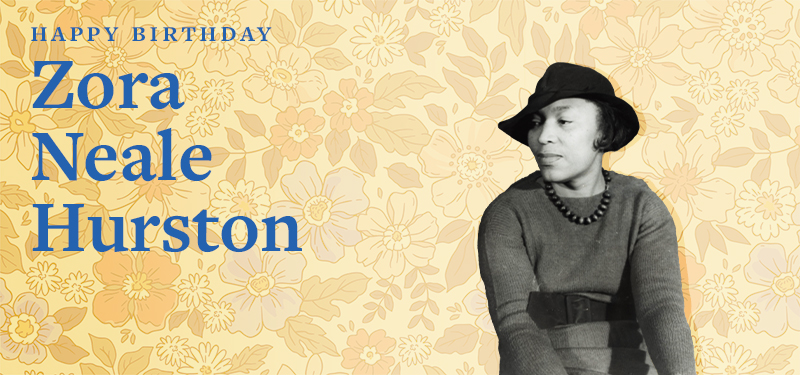
Jacksonville celebrates Zora Neale Hurston
Zora Neale Hurston was born on January 7, 1891. After her mother’s death in 1904, Hurston relocated from Central Florida to Jacksonville where she grew, lived, worked, played and loved in Florida’s largest city. (Learn about ‘Six Zora Neale Hurston Sites in Jacksonville’ on The Jaxson blog.) A central figure in the Harlem Renaissance, her work celebrated African American culture in the rural South.
Hurston as folklorist and anthropologist
Hurston’s first novel, Jonah’s Gourd Vine (1934) was praised then (and now) for its honest portrayal of African American life—her work was informed by the stories she collected as a trained folklorist. As a graduate student at Columbia University, she received a fellowship to collect oral histories and folklore in her home state of Florida.
Mules and Men (1935) was her first collection of research in Florida and the South but not the last, with some being published years after her death.
She also received funding from folklorist Charlotte Mason, a patron to Langston Hughes. In 1930 Hurston collaborated with Hughes on a play titled Mule Bone (published posthumously in 1991). However, due to a falling out between the literary giants, they never finished it.
Hurston’s Legacy
In 1937, Hurston published Their Eyes Were Watching God, the story of a Black woman looking for love and happiness in the South. While criticized at the time, especially by Black male writers, the novel is now considered her masterwork.
While she never achieved great success or recognition during her lifetime, in the 1970s her work was revived by feminist and Black-studies scholars. An anthology, I Love Myself When I Am Laughing…And Then Again When I Am Looking Mean and Impressive, was published in 1979.
Today, Hurston is seen as one of the most important Black writers in American—and Jacksonville’s—history.

